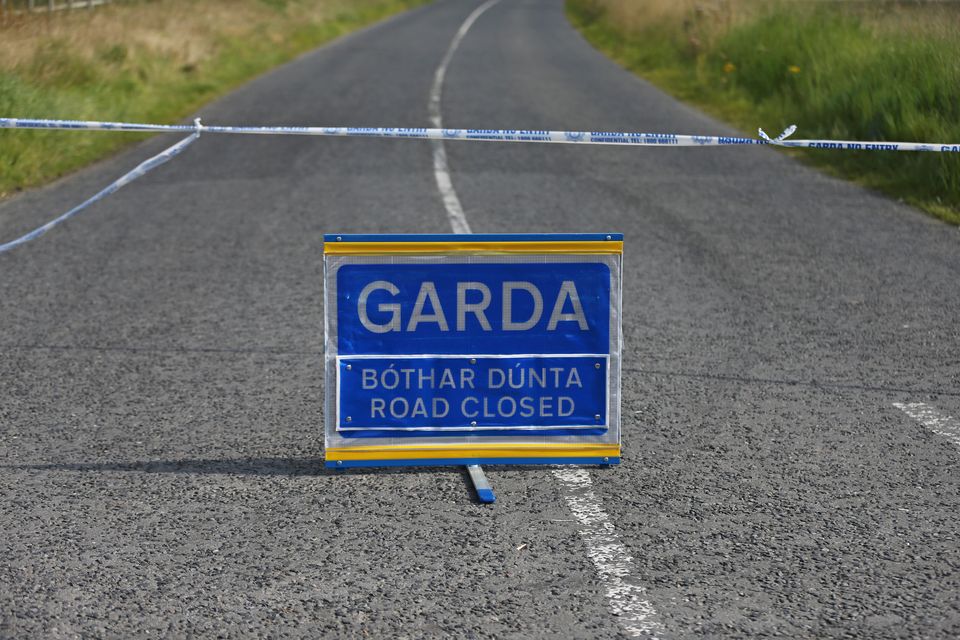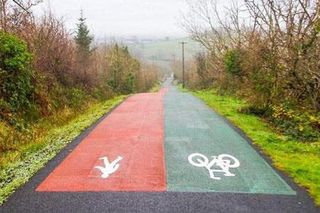Coroner calls for accident black spots to be targeted as he also singles out driver behaviour to tackle deaths on Irish roads
A stock image of a Garda road closed sign (Niall Carson/PA)
County Mayo’s coroner is calling on authorities to target accident black spots in order to help reduce the increasing number of deaths on Irish roads.
Pat O’Connor, who is also the public information officer for the Coroners Society of Ireland, stressed that bad manners, bad driving and poor signage were also contributing to the number of road deaths.
“Any death is dreadful as it creates such grief within a family and because of the suddenness of it,” he said on RTÉ’s Morning Ireland programme.
On Tuesday, Una Bowden (47), and her daughters Ciara (14) and Saoirse (9) were killed in a crash with a lorry on the N17 in Co Mayo, where Mr O’Connor is based.
Mr O’Connor said he had 24 listed inquests last Monday for his role as county coroner, nine of which related to deaths on the road in Co Mayo.
He described this as “unusual”, but he added: “This is the reality following the huge number killed on the roads.”
He stressed that the number of deaths on the road in Ireland is “regrettably increasing.”
It comes as more than 55 people, including 10 pedestrians have lost their lives on the road this year to date, marking an increase of 13 when compared with the same period for last year.
On why the trend of decreasing deaths on the road over the last number of years has reversed, Mr O’Connor pinpointed attitudes on the road, bad manners, bad driving and bad signage as some of the key reasons.
He also said the failure to tackle accident black spots on the roads is another reason why there has been an increase in deaths on the road.
“While the responsibility for driving the car is on the driver themselves, they must take full responsibility and it is important that they don’t take risks, be careful and stay safe,” he said.
“At the end of the day, authorities both nationally and locally, do have a responsibility to identify areas where there are accidents that have happened and to learn lessons from them,” he said.
Referring to his home town of Swinford, Mayo, Mr O’Connor said there has been 12 deaths over a 10 year period on a 3.5km stretch on the N5 road.
“While there have been surveys carried out by the gardaí who are extremely supportive, by the services and the local authority, we have been told that there will be no major changes in that area for at least nine years,” he told the programme.
“God forbid how many more people are going to lose their lives and be killed or be seriously injured,” he said.
Mr O’Connor stressed that the figure of 55 deaths this year does not highlight the significant number of injuries that are caused to hundreds of people.”
“If you multiply that out in the community, you have thousands of people that are affected by deaths or serious injuries,” he said.
He stressed that these serious injuries from motor vehicles can lead to people being quadriplegic, paraplegic or brain damaged.
“It is really significant for the person, their family and the future,” he added.
Join the Irish Independent WhatsApp channel
Stay up to date with all the latest news















